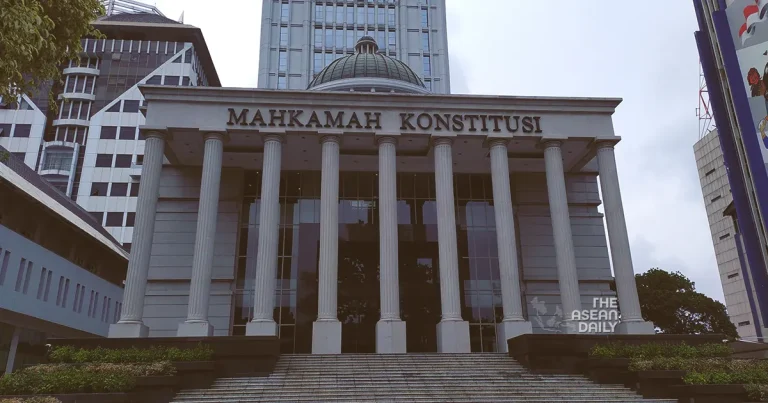1-6-2024 (JAKARTA) Indonesia has suspended a contentious legislative proposal that experts warned could undermine the independence of the Constitutional Court and grant greater influence to the incoming administration. The decision comes after pushback from the country’s biggest party, the Indonesian Democratic Party of Struggle (PDI-P).
On Tuesday (May 28), the Indonesian parliament decided not to proceed with a Bill that sought to reduce the tenure of Constitutional Court justices and impose additional conditions for long-serving judges to continue their roles. The PDI-P rejected the proposed revisions, with politician Djarot Saiful Hidayat stating, “(The PDI-P will) reject articles which weaken the MK (Constitutional Court), reject articles which have the potential to undermine MK judges who are objective, critical and bold.”
Despite the rejection from parties and legal experts, politicians and analysts have warned that Indonesia might still witness legislative changes that could potentially weaken the country’s top court and compromise the independence of its judges. Djarot acknowledged that the amendment could be revived at any moment, either as a Bill initiated by the executive branch or the 2024-2029 parliament.
The proposed revisions included reducing the tenure of Constitutional Court justices from 15 to 10 years and requiring judges who have served between five and 10 years to obtain approval from their respective appointing institutions to continue their tenure. Additionally, the composition of the court’s ethics council, which has the power to dismiss and sanction judges for ethical violations, would be altered to include representatives from the president, parliament, and the Supreme Court.
Legal experts heavily criticized the proposed changes, arguing that they would threaten the independence of the judiciary. “If the revision is passed into law, we will see judges trying to rule in favour of their appointing institutions because their jobs are on the line,” said Feri Amsari, a constitutional law lecturer at Andalas University.
The proposed revisions raised concerns about the potential impact on judges who have dissented against key court rulings, including changes to the election law that paved the way for Gibran Rakabuming Raka to become Indonesia’s next vice president. Feri Amsari warned, “The revision will give greater control to the president and the parliament to install judges who favour them and oust those who oppose.”
While the law on the Constitutional Court has been revised three times since its enactment in 2003, primarily to adapt a judge’s tenure to suit the political landscape, experts argue that previous revisions have lacked tighter and more transparent procedures for nominating and vetting judges to ensure their integrity and independence.
Although the parliament has removed the revision from its list of priority Bills, experts caution that attempts to change the law could still be revived as a priority Bill proposed by the government or the 2024-2029 parliament, which could be dominated by political parties supporting the incoming administration. Legal experts have called for vigilance and rejection of any attempts to undermine the judges’ independence, emphasizing the importance of maintaining the Constitutional Court’s autonomy in upholding the rule of law and safeguarding democratic principles.




